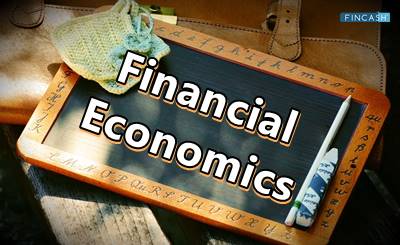Ph.D. in Economics and Finance: Introduction, Admission, Registration, Eligibility, Duration, Fees, Syllabus 2024

Introduction:
The confluence of economics and finance forms the backbone of modern financial systems and policy frameworks. Pursuing a Ph.D. in Economics and Finance delves deep into the theories, methodologies, and applications driving economic and financial decision-making. This guide serves as a compass for aspiring researchers, offering insights into admission procedures, eligibility requirements, completion timelines, career pathways, and more.
Admission Process:
- Apply to the university's economics or finance department, specifying the Ph.D. program in Economics and Finance.
- Provide academic transcripts, letters of recommendation, and a statement of purpose outlining research interests in economics, finance, or related fields.
- Demonstrate proficiency in mathematical and statistical analysis, with a strong background in economics, finance, or quantitative methods.
- Participate in interviews or submit research proposals aligned with the focus areas of economic and financial research.
Eligibility:
- A Master's degree in Economics, Finance, Financial Economics, or related fields.
- Strong academic background and research experience in microeconomics, macroeconomics, financial markets, econometric analysis, or quantitative finance.
- Proficiency in mathematical and statistical software packages commonly used in economic and financial research, such as Stata, R, MATLAB, Python, or specialized financial software.
- Demonstrated interest and motivation to pursue advanced research in economic and financial analysis, evidenced by previous projects, publications, or industry experience.
Completion Time:
Typically ranges from 4 to 6 years, depending on the complexity of the research project and individual progress.
Career Opportunities:
- Academic positions in universities and research institutions, teaching courses in economics, finance, financial economics, econometrics, or quantitative finance.
- Employment in financial institutions, investment banks, asset management firms, or hedge funds, in roles like financial economist, quantitative analyst, risk manager, or portfolio manager.
- Opportunities in government agencies, central banks, or regulatory bodies, focusing on economic and financial policy analysis, financial stability, or monetary policy formulation.
- Roles in consulting firms, advisory firms, or multinational corporations, providing economic and financial analysis, strategic planning, or risk management services.
Syllabus:
- Core courses covering foundational concepts in microeconomic theory, macroeconomic theory, financial markets, econometric analysis, and quantitative methods in economics and finance.
- Advanced seminars on specialized topics such as financial econometrics, asset pricing, corporate finance, financial derivatives, or behavioral finance.
- Electives in related disciplines like financial risk management, financial engineering, international finance, or financial regulation, providing interdisciplinary perspectives on economic and financial analysis.
Internship Opportunities:
- Collaborate with financial institutions, investment firms, or consulting companies for internships, gaining hands-on experience in economic and financial analysis, risk assessment, or investment management.
- Participate in research projects or internships with universities, research institutions, or industry partners, exploring emerging trends and real-world applications of economic and financial analysis.
- Engage in industry conferences, workshops, or seminars, networking with professionals and gaining insights into industry best practices and innovations.
Scholarships and Grants:
- Institutional funding through graduate assistantships, research fellowships, or teaching positions.
- External scholarships provided by government agencies, private foundations, or financial institutions supporting research in economics, finance, or financial economics.
- Funding opportunities specifically targeting research projects addressing pressing economic and financial issues, financial market dynamics, or policy challenges, based on academic merit or research potential.
FAQs:
What research areas can I explore within a Ph.D. in Economics and Finance?
Research areas may include financial market efficiency, asset pricing, corporate finance, financial risk management, monetary policy, financial regulation, or international finance.
What skills are essential for success in a Ph.D. program in Economics and Finance?
Strong analytical skills, proficiency in quantitative methods, mathematical modeling, econometric analysis, financial data analysis, critical thinking, and the ability to communicate complex economic and financial concepts effectively are crucial for success in this field.
Are there opportunities for collaboration with industry partners during the Ph.D. program?
Yes, many Ph.D. programs in Economics and Finance offer opportunities for collaboration with financial institutions, investment firms, or consulting companies through internships, research projects, or joint initiatives.
How can I stay updated on the latest research trends and methodologies in Economics and Finance during my Ph.D. studies?
Engage in academic conferences, seminars, workshops, and online forums, participate in research projects with faculty members or industry partners, and regularly review academic journals and publications in the field.





